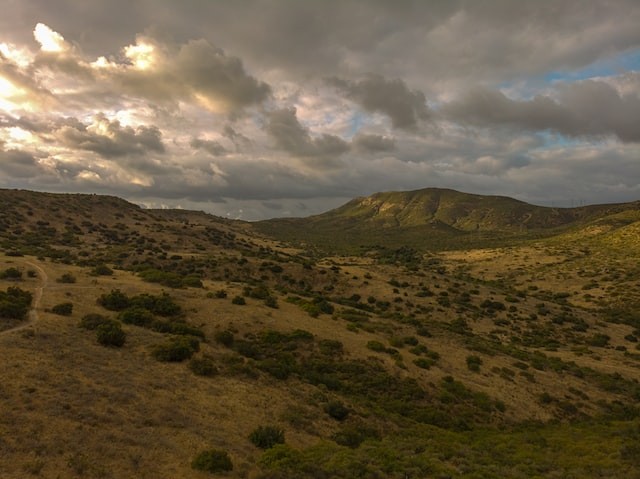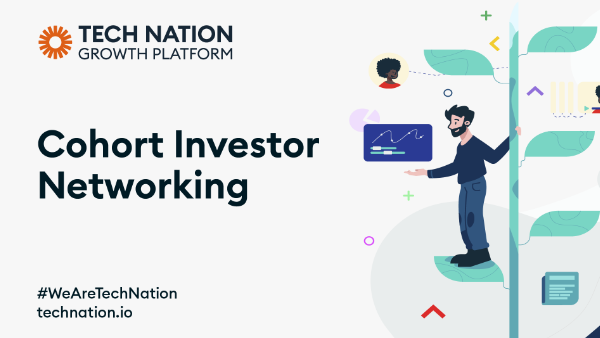Why Being Mission-Driven in Sustainability Tech is Vital

Sustainability tech and its offerings has grown exponentially over the past decade.
With the UK’s pledge to cut carbon emissions to Net Zero by 2050, scaleups across the UK are doing their part to scale their organisations to reach this target.
Magway is one such company.
The zero emission goods delivery company was founded in 2017 by business expert and serial entrepreneur Phill Davies, and world-renowned magnetics and linear motor engineer Rupert Cruise.
The idea for Magway stemmed from Phill’s frustrations with deliveries - after ordering three identical gifts for his children, and observing a totally inefficient and unsustainable delivery process.
This resonated with Rupert too, and as one of the world’s experts in magnetic linear motors, the co-founders started exploring how the technology could be applied to improve the reliability, speed, and sustainability of goods movement.
Magway came to fruition from the co-founders desire to rectify both an environmentally and operationally broken delivery system.
Phill believes the key to creating sustainability tech that will make a difference is creating a company, product, or function that is mission-driven.
We spoke with Phill to find out how Magway and its mission-driven ethos is resonating with the sector and beyond.
Building sustainable operations
Magway commercial director Phill wants to revolutionise goods movement for not only the UK, but the world.
Phill spent two weeks at COP 26 in Glasgow last year (showcasing Magway’s technology), which he says was an eye opening experience.
“You speak to your kids or grandkids, and if you look at the damage that we as a generation inflicted, deliberately or not, on our planet, we need to do something drastic.”
“Listening to Al Gore at COP 26, he said five years ago there was denial, and as of last November, the biggest threat was delay. We need to do something now and if governments are serious about it, we all need to walk the walk.”
Growing through adversity
Phill admits that as a startup, you want to go as fast as you can - it’s the nature of the beast after all, but scaleups still need to be smart with their time and choices.
He says: “There’s a natural urgency to keep going and going and going, but at the same time, you need to be careful.
“The number one rule is: don’t run out of cash. Since day one we’ve been raising money, spending money, and luckily we have paying customers so we’re also generating revenue, but there’s a fine balance to growing against the backdrop of a fairly uncertain economic backdrop.”
Phill acknowledges that the environment in which we operate currently is very different to when Magway started. Two years of macro uncertainty and COVID has made it a challenge.
But Phill believes the fact that Magway is a purpose-driven organisation has helped.
Having a mission at the heart of your business, that people can get on board with and truly believe in, has been key when raising money via crowdfunding. And staying true to the business's roots has been an advantage for Magway’s growth too.
“If we look at the generation for whom we're trying to solve this problem, a lot of them want to engage with it and get it to work, and be a part of solving the problem,” he says.
Above all else, Phill says there are a few factors that really help businesses grow.
“The true drivers of growth are funding, innovation and people. At Magway we’re knowledge intensive, so we need people with expertise, and the money to pay them. And also the ability to create value with equity and options for the team as well.”
Marketing a product like Magway
Phill notes that in the early days, if you were starting a business, you would go to ‘every trade show under the sun.’
He says: “I went to lots of trade shows and spoke to a lot of people to understand the problem that we wanted to solve, and to understand who the buyers of our solution would be. You need to fall in love with the problem”
Magway eventually started crowdfunding on the Crowdcube platform - with an initial target of £750,000.
But with extensive patented technology and tacit knowledge underpinning Magway’s solution for zero-emission sustainable and efficient goods movement, in 2020, Magway surpassed this target, securing over £1.5 million in private investment.
It was belief in the product and what Magway is trying to achieve that really attracted investors and fundraisers according to Phill; further demonstrating how Magway’s mission-driven focus has helped grow their reach.
In early 2022, Magway, looked for further investment of £750,000 via Crowdcube in order to grow, scale its technology, and hire more staff for a team that grew by 200% in six months as it moved into an expansion phase.
John Hughes, executive chairman of Magway, said in an interview: “If we are to successfully fight climate change, we must continue building a movement of likeminded people who want to help create a greener, better world.”
Lessons learned throughout a scaleup career
Phill has been involved with a number of startups, and although he says there are many similarities, each experience is unique.
“It's difficult, it's challenging. There will be ups and downs, but you don’t know what they’ll be. You can hope and predict, and you can have a go, but the reality is the business will likely be a different version to what you originally planned.”
Phill also advises any founders or scaleup leaders to lean on their network.
He says: “I think it's important to tap into a broad network of people sharing their experiences. Don't be scared to ask.”
But what does Phill hope the sector will achieve in the future? He wants us to get to a point of green infrastructure - but to drop green from phrasing. In other words, place sustainability and conscious choices at the heart of everything we do.
“The way you build and develop technology, standardisation, regulation; it’s going to be a combined effort. I’m a natural optimist, but we have to put in the work, because it’s not just going to happen overnight.”


